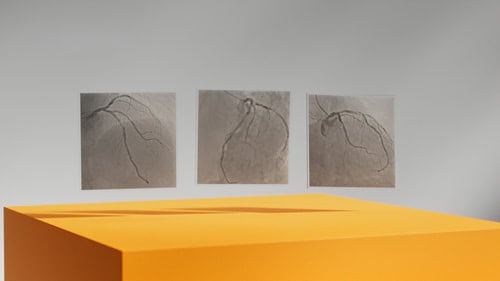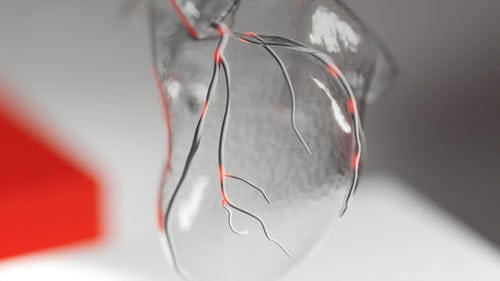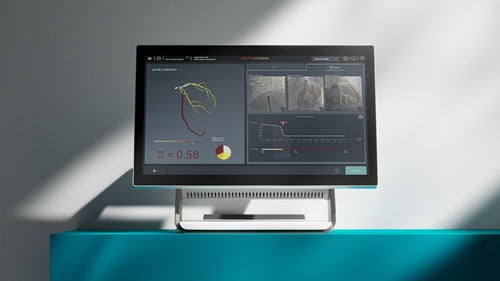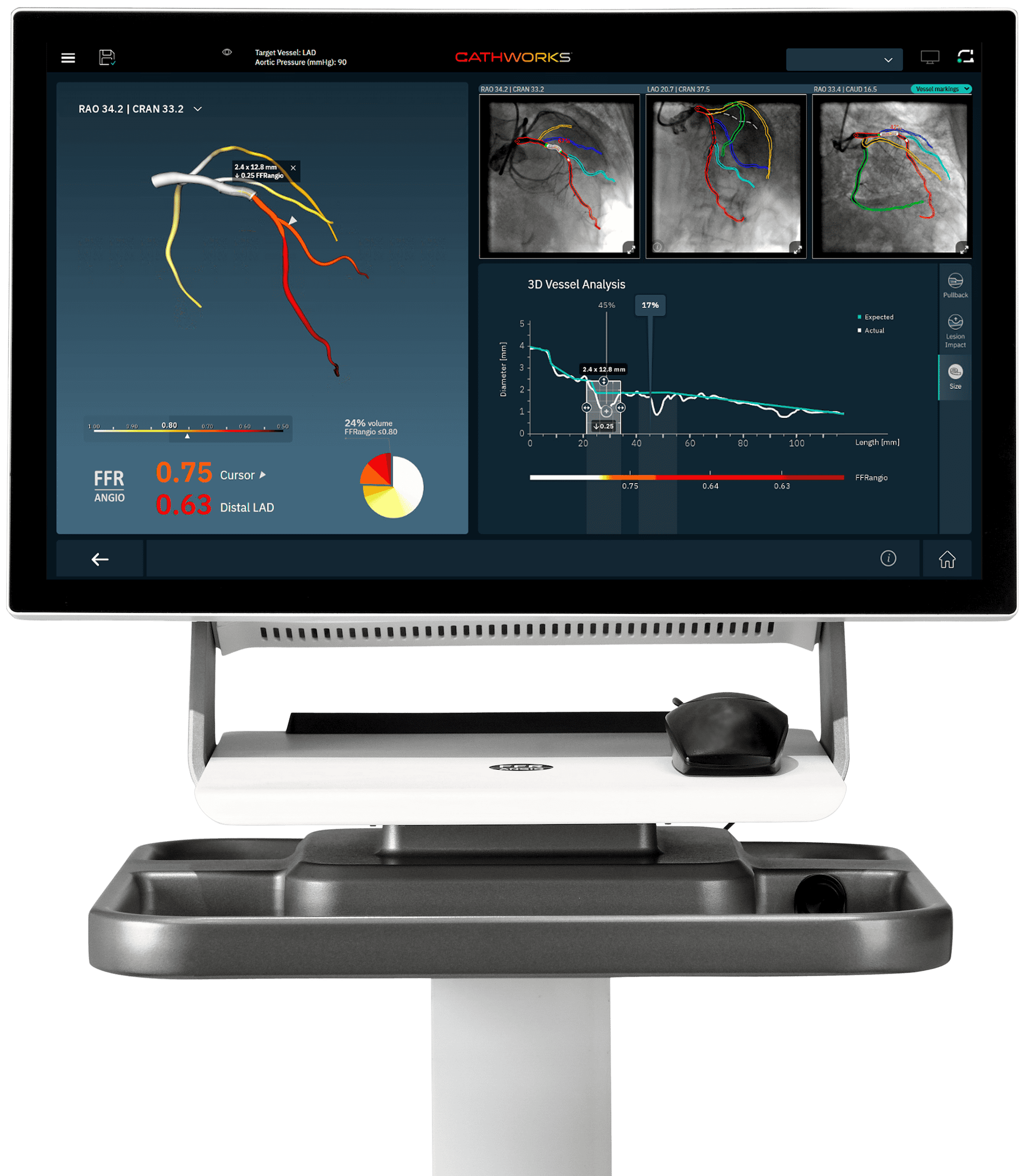
Minimizes Risk and Radiation Exposure
- Eliminates the need for invasive pressure wires, drugs or a guide catheter
- ~20% reduction in radiation compared to wire-based physiology1
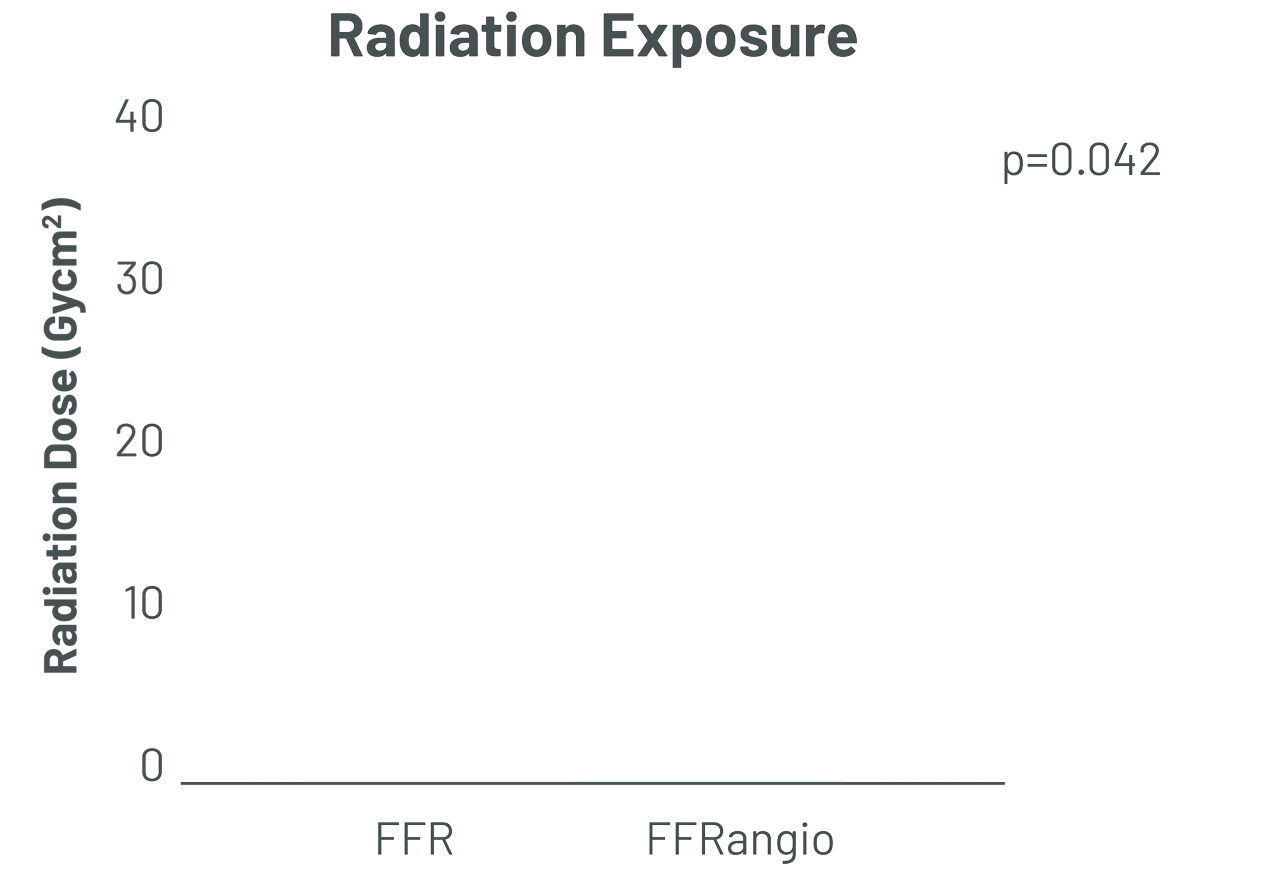
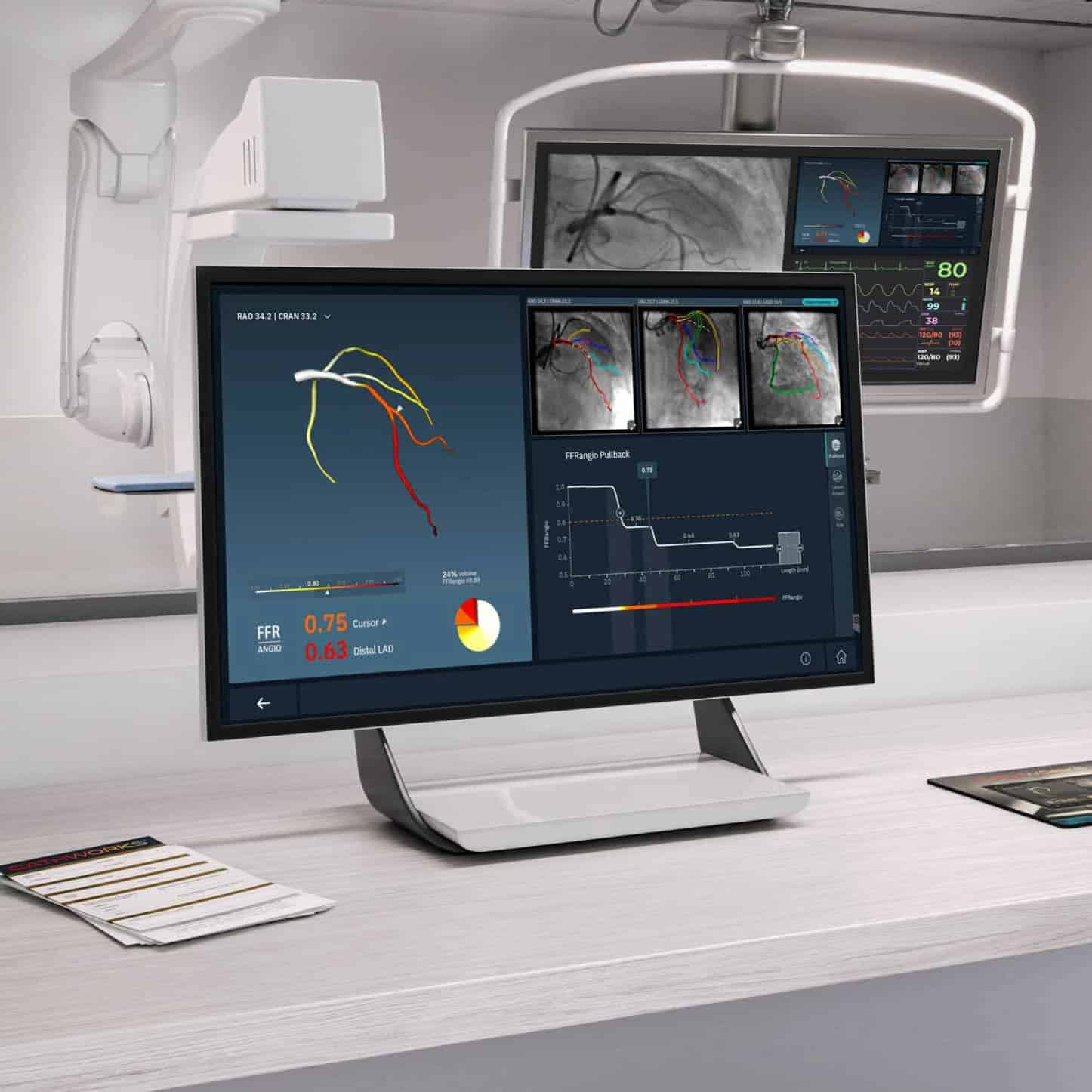
Streamlines Procedural Workflow
- Intuitive user interface simplifies operator experience
- Artificial intelligence aids in quick angiogram analysis
- Allows for a functional assessment to be performed on one side of the heart while simultaneously acquiring images of the other side
- Seamless integration with the boom and PACS
Optimizes Clinical Decision Making
- Real-time FFRangio values at every point on the coronary tree
- Simulated pullback curve differentiates functional patterns of CAD to target the most important segments
- Lesion Impact enables excluding a lesion to assess residual ischemia*†
- Integrated sizing tool for non-invasive lesion measurements
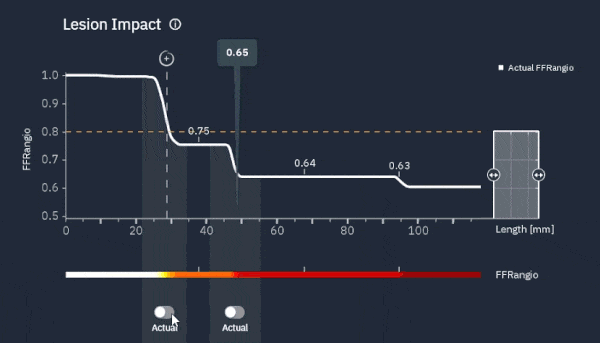
Exclude lesion(s) to view the modified FFRangio values
Diagnostic
Accuracy2
Positive
Predictive Value2
Negative
Predictive Value2
- Highest diagnostic accuracy compared to wire-based FFR among non-hyperemic indices and angio-based technologies2,3,4
- Demonstrated non-inferiority to FFR with similar revascularization rates and MACE at one year in the randomized controlled PROVISION Trial1‡
- Excellent real-world outcomes in line with data from large FFR real-world studies5
MACE Excluding Periprocedural MI1
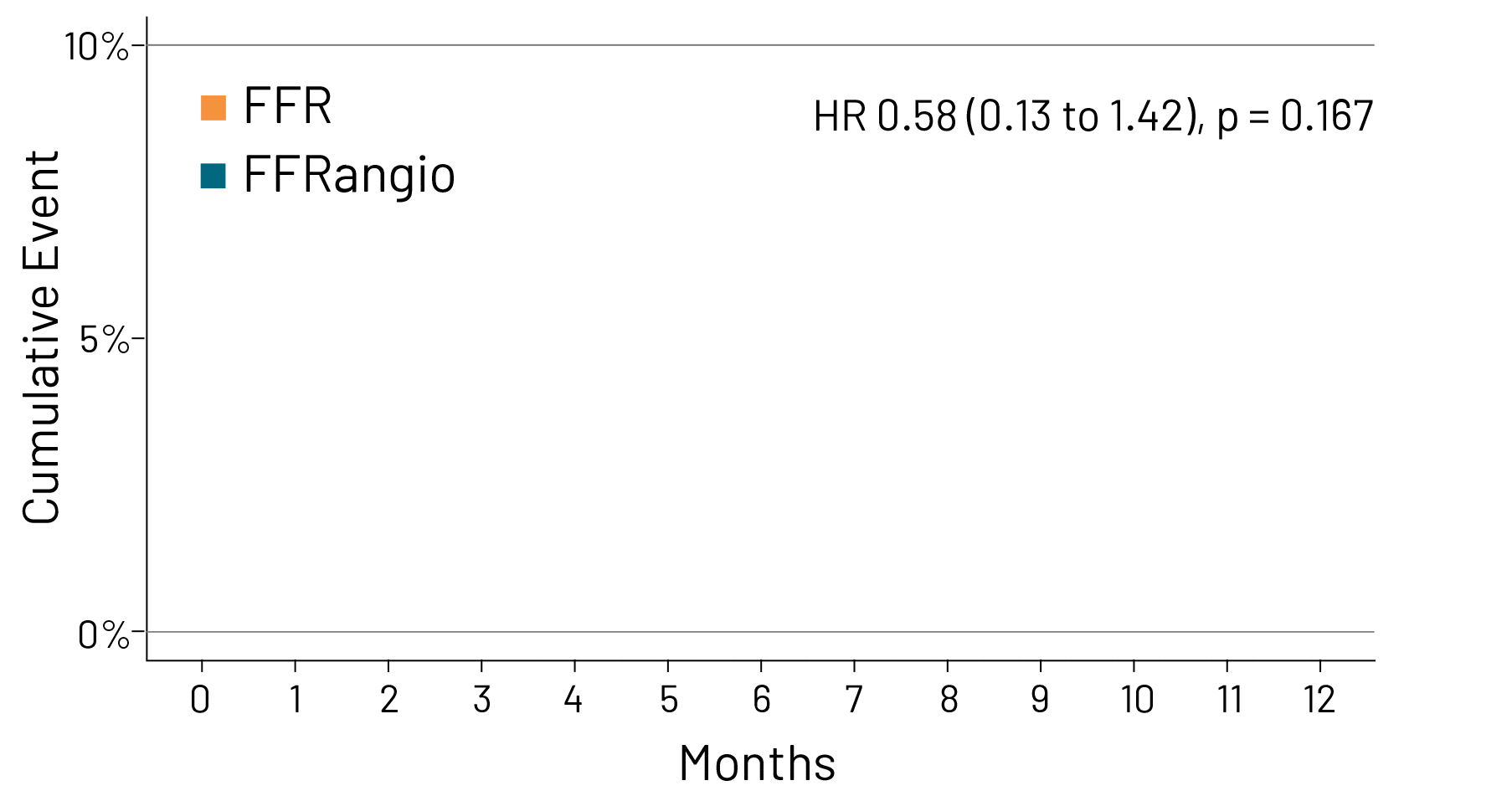
Similar MACE rates at one year for FFRangio and FFR‡
See How the FFRangio System Works
Begins with routine
2D angiograms
The FFRangio System analysis begins with three angiograms, 30° apart, that best demonstrate the coronary anatomy.
Transforms the angiograms into a 3D model
The system generates an accurate 3D volumetric model of the coronary tree.
Analyzes and calculates
Using an advanced algorithm, the system analyzes every branch and bifurcation, then calculates resistance to blood flow along each segment of the coronary tree based on diameter and length.
Provides a comprehensive physiological assessment
The system compares resistance to blood flow in diseased versus healthy vessels and provides FFRangio values at every point along the coronary tree.
Find out more
Hear What the Experts Are Saying
Dr. Morton Kern discusses how he sees angio-based physiology being the future.

*
Lesion Impact feature is only available in selected geographies.
†
Lesion Impact feature is not available for Diagonal and Ramus cases.
‡
This study was primarily designed to evaluate the non-inferiority of FFRangio compared to FFR with respect to revascularization rates. The sample size was not sufficient to assess clinical outcomes such as major adverse cardiovascular events (MACE).
1.
Matsuo H et al. Prospective randomized clinical outcomes of angiography-based fractional flow reserve guidance versus wire-based fractional flow reserve, PROVISION Trial, as presented at TCT 2024. UMIN clinical registry ID: UMIN000049230.
2.
Witberg G et al. Diagnostic performance of angiogram-derived fractional flow reserve: a pooled analysis of 5 prospective cohort studies. J Am Coll Cardiol Intv. 2020; 13(4):488-97.
3.
Johnson N et al. Angio-derived fractional flow reserve versus invasive nonhyperemic pressure ratios. JACC VOL. 73, NO. 24, 2019; 3230-3233
4.
Skalidis I et al. Head-to-head comparison of two angiography-derived fractional flow reserve techniques in patients with high-risk acute coronary syndrome: A multicenter prospective study. Int J Cardiol 2023 Dec 21:131663.
5.
Witberg G et al. One-year clinical outcomes of FFR angio-guided treatment of coronary artery disease, as presented at EuroPCR 2023.
